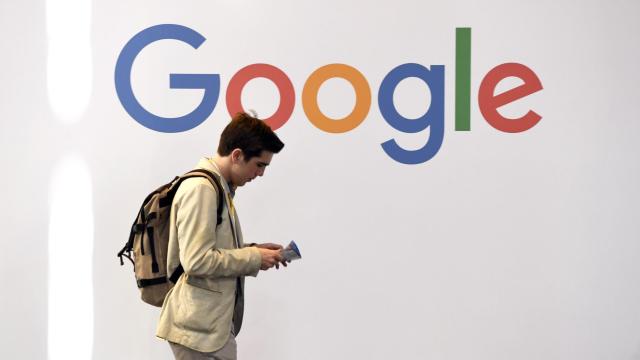The weirdest part about our “privacy,” as far as our devices are concerned, is that the way you define the word is pretty tied to your finances. Just ask Google.
When most lawmakers talk about terms like “privacy abuses,” or “surveillance,” it’s usually in big, sweeping terms that are light on details and heavy on scare quotes.
Take those words to business-types in Silicon Valley though, and you’ll likely hear about, well, costs and benefits. On one hand, surveillance is clearly profitable. On the other hand, privacy is profitable, too: We spend billions on privacy-related tech each year, and the god-knows-how-many browsers and apps using “privacy” as their main pitch have seen users flocking their way.
It’s a market threat, and the tech giants know it, which is why we’ve started seeing Mark Zuckerberg use phrases like “the future is private” when talking about his company, or Tim Cook using a massive billboard to essentially say that the iPhone is privacy. But in these cases, “private” usually means “private enough.” The big reason that Apple lets some privacy abuses slide, and Facebook is, well, Facebook, is because that’s what the bottom line demands. I hate to break it to you, but a tech giant’s privacy promises aren’t about you or your safety. They’re about toeing whichever part of the line between surveillance and security brings in the most cash.
So when Google announced in a Wednesday blog post that it would be bringing a new set of Apple-esque tracking restrictions to its Android phones, my response was less “huzzah!” and more “hmmmm,” especially considering how Google’s $US150 ($208) billion ad business is built on tracking users virtually everywhere they go.
On Android devices, in particular, that tracking happens with the help of a device-specific identifier baked into the hardware, called a Google Advertising ID (or GAID for short), which Google claims will be ushered out sometime over the next two years in favour of a privacy-protecting alternative, built as part of what it’s calling the Privacy Sandbox initiative.
Other goals Google noted were to “limit sharing of user data with third parties,” and “reduc[ing] the potential for covert data collection,” the same way Apple did with its recent iOS updates. The change gave iPhone owners the ability to turn off third-party tracking across their apps, and people did, with gusto. On a recent earnings call, Meta estimated that the company could lose $US10 ($14) billion this year from Apple’s updates. It all sounds like a hands-down win for privacy, right?
Well, not according to Google. The announcement doesn’t call out Apple by name, but it notes how “other platforms have taken a different approach to ads privacy” — the wrong one. Google called this unnamed company’s tactic of “bluntly” restricting developers and advertisers an “ineffective” approach. And if you didn’t know which company it was talking about, that drag included a link out to a study suggesting how Apple’s updates offer “an illusion of privacy,” and not much else (though the whole $US10 ($14)-billion-in-lost-profits suggests it’s at least somewhat consequential).
Further, a close read of Google’s Privacy Sandbox announcement reveals the limits of the privacy-protecting enhancements it has in mind: The new ad technology will be “more private” and “privacy enhancing,” but “without putting access to free content and services at risk.” That is to say, don’t worry, Mark, the money will keep flowing.
Meta, meanwhile, seemed totally on board with whatever ideas Google seems to have. Graham Mudd, an ads VP at the company, tweeted out how “encouraging” Google’s collaborative approach with industry groups was.
Encouraging to see this long-term, collaborative approach to privacy-protective personalized advertising from Google. We look forward to continued work with them and the industry on privacy-enhancing tech through industry groups.https://t.co/UdrlTLJmsz
— Graham Mudd (@grahammudd) February 16, 2022
Considering how Mudd was previously the one issuing somber blog posts about the impacts Apple’s privacy changes inflicted on his company, his optimism here should be a warning for all of us. Google might let us turn off tracking on Android in the future, but that’s not going to happen at the expense of anyone’s business.
